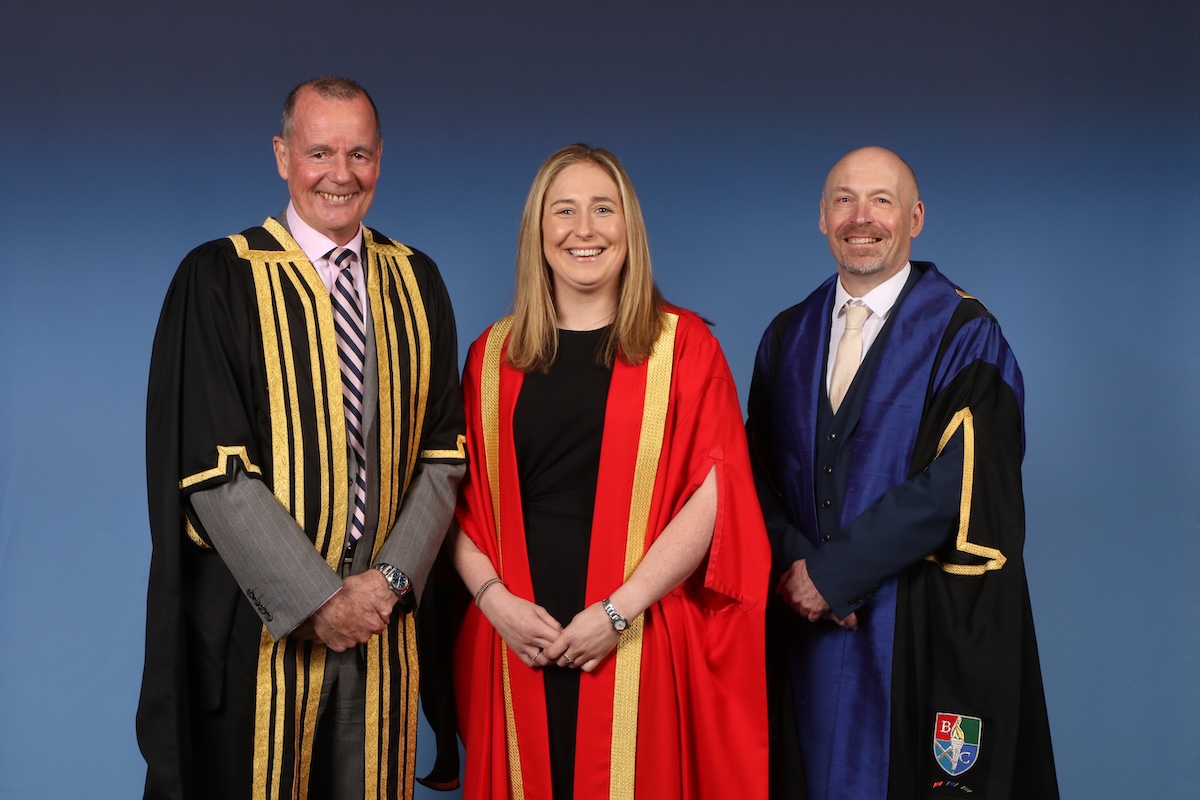Teachers want to build essential skills in their classrooms

New research finds that enabling teachers to build students’ essential skills could boost their job satisfaction
New research in the Essential Skills Tracker 24 in collaboration with the Edge Foundation, has revealed the overwhelming support for teaching essential skills in education.
From communication and interpersonal skills through to creative problem solving and self-management, these highly transferable skills have been shown to command a 12% wage premium, drive social mobility and improve job and life satisfaction.
The research, with fieldwork conducted by YouGov, sheds light on the pressing need for a system-wide approach to teaching essential skills, while highlighting the potential to improve job satisfaction within the teaching profession.
Key findings include:
- Teacher demand. Nearly all teaching professionals (98%) see essential skills as important for their learners’ employment opportunities. This compares to 99% and 96% for literacy and numeracy respectively. As many as 92% of teachers think explicitly teaching essential skills is important in preparing learners for both life and work.

- Schooling not preparing for life or work. Only 3% of teaching professionals believe that the current schooling system prepares young people for life ‘very well’, and only 2% for work. This rises to 34% and 39% for ‘quite well’.


- What motivates teachers. Preparing students for fulfilling and productive lives alongside developing learners’ characters and skills are the top three motivations for teachers to be in the profession, identified as “very” important by 73%, 63% and 60% respectively.

- How to build these skills. Teachers are supportive of several different routes to building essential skills in the classroom: threading essential skills throughout subjects (85%); separate lessons on essential skills (52%); and special projects (74%).
- Curriculum reform. The majority of teachers (86%) agree that the national curriculum should include essential skills, with almost half (47%) agreeing strongly.
- System-wide approach. Teachers have identified that we need a nuanced, system-wide approach to ensure that essential skills are taught effectively in education. The solutions they identify for building essential skills have not only been trialled and piloted, but have also been shown to work at scale.
“This research shows that teaching essential skills is highly motivating for teachers. It also shows that there is overwhelming support for system-wide policy changes that would make rigorously building these skills in every classroom a reality. ” Tom Ravenscroft, Founder & CEO of Skills Builder Partnership said.
Insights from the education industry panel
We were delighted to explore the research alongside three speakers from across the education sector to bring in key insights and share strategies from their own work – from the importance of integrating essential skills into education, supporting teacher wellbeing, strategically embedding skills into the curriculum, and to thoughtfully assessing essential skills.
Essential Skills Tracker 2024 panel
Evelyn Haywood, Director of Education at Skills Builder Partnership, led the discussion, joined by:
Poppy Coggins is a Teacher of Film and TV and also assumes the role of Teaching and Learning Lead for Professional Behaviours at the London Screen Academy. Prior to pursuing a career in education, Poppy worked as a freelance Production Manager in the TV industry.
Phil Avery is Director of Education at Bohunt Education Trust, which is a multi academy trust comprising 9 schools. Bohunt’s vision for education is to combine the highest expectations, an ethos of ‘enjoy, respect, achieve’, unparalleled opportunity and highly effective teaching to develop students who are ‘game-changers’.
Sophie Deaville is former Deputy Head Teacher at St Paul’s CofE Primary school in Staffordshire, where she led the Skills Builder programme to achieve a Gold Award. Now, Sophie is Lead Education Associate at Skills Builder working with 30 schools across the globe and multi academy trusts in the UK.
Importance of essential skills in education
“There are too many students in school now that don’t have opportunities to build skills and there are too many teachers that aren’t happy about this. So we need to make a change and I feel we’re in a great position to do so.” Sophie Deaville
Tracker 24 research finding: Most teaching professionals (92%) view explicitly teaching essential skills as important in preparing learners for both life and work, with almost half (47%) believing this to be very important.
Our panel explored the importance of teaching essential skills and how it connects with the purpose of education. “I think it’s really important to provide teachers with opportunities to reconnect with why they became a teacher,” Sophie explained. “We became teachers because we wanted to make a difference to the young people that we were serving. And as soon as that starts to get squeezed, we question, why are we doing this? What’s the purpose?”
For Poppy, that purpose is about addressing skills shortages in the industry, but also LSA’s aspiration to diversify it. What stood out to her was the finding around the importance of explicit teaching of essential skills. “For me it was the statistic that 92% of teachers think that the explicit teaching of the essential skills is important and about 50% ‘very important’. I definitely fall into the ‘very important’ and I think that all teachers at LSA would. [Our students] need to be using these essential skills”. In her role as teaching and learning lead, Poppy is creating opportunities for essential skills by making the implicit explicit throughout the entire curriculum and in every lesson – seeing the classroom as a high stakes practice round.
For Phil, it’s about developing students that are “game changers” and asking questions, “it was thinking about purpose, agency, mastery, what do we want our students to be really good at by the time they walked out the door?”. He highlighted that Skills Builder can support the wellbeing and satisfaction of teaching and non-teaching staff – “it can be everywhere, which means that everywhere, potentially all the time, teachers are being reminded of the purpose of education.”
Skills Builder Partnership’s research shows that those with higher levels of essential skills experience improved outcomes in terms of wages, life and job satisfaction.
Embedding essential skills into and across the curriculum
Tracker 24 research finding: The majority of teachers (86%) agree that the national curriculum should include essential skills, with almost half (47%) agreeing strongly.
There were a number of ways the panellists have found space and time to integrate essential skills into their curricula.
“Yes, the curriculum is crowded but there are some really important things for students to know”, commented Phil. “ One of the things that we’ve decided we absolutely have to do is Citizenship. We have statutory citizenship education all the way from Year 7 to Year 11. Within that we started to build in the language of Skills Builder – it just made sense. And then you start to realise it just made sense for it to be in the Outdoors, and it just made sense to be in your Careers piece. We haven’t lost any time. It just elevates it. It just gives students more choice, it gives them more purpose, it allows them to see what they’re learning as they go through. It augments and enhances the decisions we’ve already made around what we value in education.”
Sophie explained how their approach grew from timetabled skills lessons to all subject areas, “we made a conscious effort to have essential skills as a timetabled lesson so that every student across the school had a Skills Builder lesson. It was explicit and focused teaching of a skill and the teachers used the Skills Builder Hub to assess. We then looked at the wider curriculum – individual subjects. There, it was the subject leaders responsible for determining what the essential skills looked like in their subject areas. For example, I led the maths curriculum which felt like it was obviously problem solving, but I wanted to do more than just that. How can we get to all the skills? So I set criteria for what we wanted to see in lessons, and that was in conjunction with the wider teaching staff.”
At LSA, having a clear plan and learning outcomes helps get students ready for the workplace. “If we take communication – speaking and listening, for example […] in Year 1 we want every student to be able to stand up and pitch a completely original idea just to their class – that’s around 28 students. That doesn’t sound a lot but when you look at the makeup of our students and you also take into account that we’ve got quite a high proportion of students with Special Educational Needs, that can be a really big challenge. It’s through really clear scaffolding and using the steps that means that by the end of the year pretty much every child is able to do that. It’s really that combination of having the essential skills embedded into every single lesson that you’re teaching.”
Assessing essential skills
“We had the same rigour in assessment of essential skills that we had in any other subject area.” Sophie Deaville
Tracker 24 research finding: Teaching professionals see the potential for assessment to shift to being more holistic to include essential skills (86% support this) and 92% of UK teachers think assessment should be more multi-modal.
All panellists acknowledged the role of assessment in a successful essential skills education. Examples touched on the holistic nature of this and how it can be done differently across different subject areas.
Sophie emphasised the rigour to which essential skills were assessed at St Paul’s, where they had the same rigour in assessment of essential skills as in any other subject area. “We assessed the essential skills in the same assessment cycle, it was a non-negotiable. We assess English, we assess maths, we assess the essential skills. Because this was what it was to provide a well rounded education for those students”.
At Bohunt, Phil described formative assessments for essential skills built in the language, such as in reflection related to their outdoor curriculum and both formative and summative assessment within Citizenship where they use oracy assessment using “the Skills Builder Framework and the student self-reporting quizzes show [students] that the skills are formatively used, getting them ready for that more summative oracy assessment where the Framework is in there again”.
At London Screen Academy, Poppy detailed the system which sees essential skills assessed as part of student projects and reported to parents – increasing the touchpoints with the shared language.
Enacting change
The panel discussed various strategies to how they have successfully enacted change in their settings, from buy in, to integration. One key thread was around a shared language. Poppy shared how the London Screen Academy works with industry partners to give students real-life experiences using their essential skills, and how they are encouraging these employers to grade students in assessments using that same language of the Universal Framework. Before any of this, students work with the internal industry team to set their goals and targets for the development of essential skills in their work experiences.
Sophie explained how at St Paul’s, buy in wasn’t the issue but that teachers needed support. “We had teachers that were passionate about teaching skills, but we needed something to help us with that. Staff training was crucial – we made sure that the essential skills were part of our CPD. We might have an Education Associate delivering a session to staff, it might be an internal gathering of teachers to share best practices, it might just be time for teachers to plan the next half term…The essential skills were at the heart of everything we did and that’s because of the staff.”
For Phil, building a coalition has been fruitful, “I’m trying to enact change across 9 schools, 11 and a half thousand students and about just over 1500 teachers. So the first thing was to find who are going to be my advocates, who is going to drive change? That’s why across the trust we decided to go with Outdoors, Citizenship and Careers so we have three people that lead that. The other fantastic advantage about those three areas is that every student as they go through experiences those.”











Responses